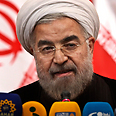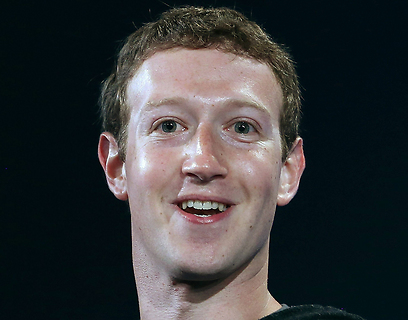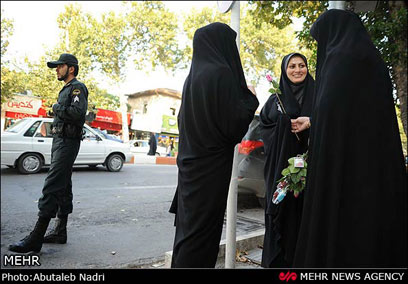
Iran's president elect says yes to Facebook
Newly elected Rohani says social media is 'welcome phenomenon' to youth magazine; opposes media restrictions, gender segregation, even criticizes hijab
In an interview, parts of which were released by the British Guardian, Rohani said Social networking sites such as Facebook were a welcome phenomenon.
Related stories:
- Iran says new US sanctions will complicate nuclear issue
- Iran's Rohani vows to moderate foreign policy
- Moderate cleric Rohani wins Iran presidential election
In the inteview, Rohani told Chelcheragh – a popular youth magazine – that he is opposed to segregation of sexes in society, would work to minimize censorship and believes internet filtering is futile.
Of internet filtering, Rohani said some of the measures taken by the authorities to restrict users' access online was not done in good faith and was instead politically motivated.
"There are political reasons. They have fears of the freedom people have in online atmosphere, this is why they seek to restrict information. But filtering is incapable of producing any (useful) results," he said.
"Supporters of internet filtering should explain whether they've successfully restricted access to information? Which important piece of news has filtering been able to black out in recent years?"
According to the Guardian, access to hundreds of thousands of websites is blocked in Iran, including Facebook and Twitter, but millions of Iranians use them via anti-filtering software or virtual private network (VPN) services.

Facebook founder Mark Zuckerberg (Photo: AFP)
Despite the filtering, Rohani's campaign was active on both sites at election time, the report added.
"The virtual space is a tool and it can be an opportunity or a threat," said Rohani.
"I remember that (former president) Ayatollah Hashemi Rafsanjani once called social networking websites such as Facebook a welcome phenomenon. Indeed they are."
The Guardian reported that Rohani also pledged to minimize censorship of artistic and cultural works and said the state – instead of interfering in the affairs of artists and cultural figures – should provide them with security.
"We should not tighten the red lines all the time, we should show that censorship is not our goal," he said.
According to the Guardian, on the question of women wearing the hijab, a contentious issue in a country with millions unhappy about the mandatory religious code, the president-elect said he was against the crackdown against women with loose clothing – but he stopped short of saying it should be left as voluntary.

Women in hijab (Photo: MEHR)
In his interview, Rohani said he opposed segregation of men and women, including at universities, and criticized the politicians who are against allowing women to enter stadiums to watch football matches along with men.
Iran's state television, IRIB, the mouthpiece of the country's ruling system, also came under attack from Rohani, as he urged freedom of the press.
"A large population of our youth are ignoring the (state) television because in it they haven't seen the honesty, morality, justice that it merits," he said.
"When the state TV shows a program about the birth of a panda in a Chinese zoo but doesn't broadcast anything about workers staging a protest because they haven't been paid for six months … it's obvious that people and the youth will ignore it. The solution is to have freedom of expression.
"If a day comes that our television shows more news coverage than foreign networks such as BBC, then people will reconcile with it."
- Receive Ynetnews updates directly to your desktop










